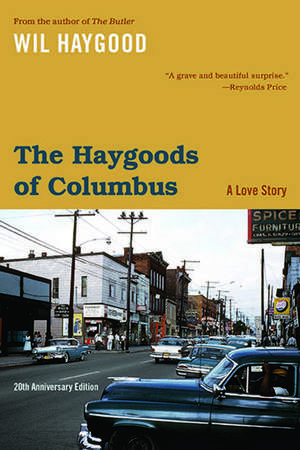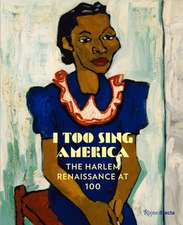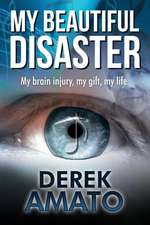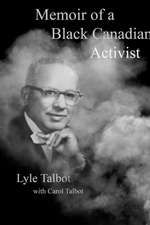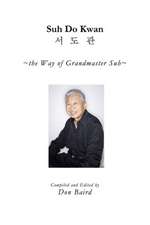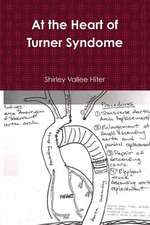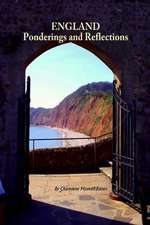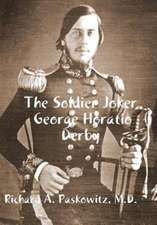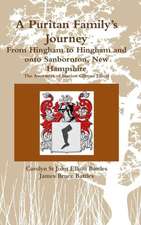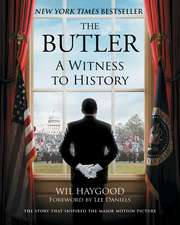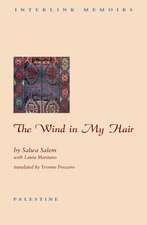The Haygoods of Columbus: A Love Story: Trillium Books
Autor Wil Haygooden Limba Engleză Paperback – 21 noi 2016
Wil Haygood’s memoir of his hometown of Columbus, Ohio, is an uplifting and unsparing celebration of the ties that bind all loving American families. The lives of the Haygood clan—grandmother a hotel cook, mother a nightlife-loving waitress, father mostly absent, one brother a legendary pimp, the other a star-crossed dreamer, sisters whose fates included very little disposable income—were intertwined with that of Mount Vernon Avenue, a seductive street of shops, juke joints, and speakeasies at the epicenter of Columbus’s black community. Wil loved that avenue. Gifted and ambitious, he eventually found his first reporting terrain there, writing for the local paper, The Call & Post, while the first waves of urban renewal began to shake and shift the city of his childhood. Haygood tells here of his early passions: his fierce love for his restless mother, his enthusiasm for fishing in the Olentangy River, and his adolescent love of basketball, which drove him to ride buses surreptitiously.
Preț: 171.14 lei
Nou
Puncte Express: 257
Preț estimativ în valută:
32.76€ • 35.59$ • 27.53£
32.76€ • 35.59$ • 27.53£
Carte disponibilă
Livrare economică 31 martie-14 aprilie
Preluare comenzi: 021 569.72.76
Specificații
ISBN-13: 9780814253915
ISBN-10: 0814253911
Dimensiuni: 140 x 208 x 23 mm
Greutate: 0.43 kg
Ediția:1
Editura: Ohio State University Press
Colecția Trillium
Seria Trillium Books
ISBN-10: 0814253911
Dimensiuni: 140 x 208 x 23 mm
Greutate: 0.43 kg
Ediția:1
Editura: Ohio State University Press
Colecția Trillium
Seria Trillium Books
Recenzii
“Wil Haygood has achieved a profoundly attractive blend of emotional and moral complexity in a prose of crisp lucidity and irresistible drive. I’ve admired his work for years; in this new family memoir he’s surpassed himself. Like all prime work, it’s a grave and beautiful surprise.” —Reynolds Price
“The Haygood family, for all the rich uniqueness of its warmth, struggle, and dignity, could be any family in America. But there is only one writer like Wil Haygood. His elegant prose, honorable eye, and unfaltering voice combine to make his memoir beautiful.” —James Carroll
“The Haygoods of Columbus is indeed a love story: the love of a boy for his family, the love of a man for the truth . . . . It is a story that continues to have different endings as each generation adds its patch to the quilt.” —Nikki Giovanni
“The most loving and generous book I have read in years.” —Richard Rhodes
“Gracefully written and often moving, The Haygoods of Columbus takes the black experience out of the realm of sociology and puts it squarely in the kingdom of literature.” —David Nicholson, The Washington Post
Extras
Any life seems an accumulation of events, fate, some luck. When I was a little boy, in love with nature, with fishing, I'd walk alone the two miles to the Olentangy River dam in my hometown of Columbus, Ohio. I'd dance across slippery rocks, water swirling underneath and the dam gushing near my face, until I reached my favorite spot, which lay right below the center of the dam. I'd stand there on rocks, balancing myself, with rising woods in the distance, and I'd disappear into thought, fast-moving fish, sunlight glinting off the water, the water moving downriver. The dam at my back turned noiseless, the entire world went silent. It was the one place in the city, however, that my grandmother did not wish me to go. Boys sometimes disappeared at that dam, beneath its cold waters, the life drained from them. But I fished happily, kept safe for some mysterious reason, falling now and then but never in water past my waist, and even then rising quickly with a deep secret in my chest: I did not know how to swim.
Not long ago my mother, Elvira, handed me a watch. It's a beautiful timepiece, squared and edged in maroon, dead of time now, just old. It belonged to her father, Jimmy, my grandfather. It is the first thing my mother has ever given me that has led back to her family. My mother has never made a habit of looking back. Jimmy received the watch from his Uncle Doc, my great-great-uncle. I remember Uncle Doc, an old shiny man with grainy eyes full of mystery. He lived alone in a rooming house on Mt. Vernon Avenue, back in the days when a man could live in a rooming house and still hold his head high.
I never knew what my grandfather Jimmy and Uncle Doc did before arriving in Columbus. There were things in my family I guess I was not meant to know. I never knew Jack, my father, never knew him like a son knows a father, even as I came to love that man, his voice heavy and sweet. I never knew why my mother sometimes disappeared. Never for more than two days. Her destination could be near as Mt. Vernon Avenue. Sometimes it was more exotic, all the way up to Detroit, Michigan, three pairs of dangerous high heels in her suitcase, a weekend of partying with relatives. Still, it seemed like an eternity. My tummy would fill up like a cup with loneliness, and I'd cry. For years I didn't know about my brother the pimp, Jack's bastard son, who in due time came rolling thunderously into all of our lives.
The things I knew seemed fine enough. I knew how to find my jar of marbles in the dark. I knew that living on the north side of Columbus in a green house with yellow trim, a back yard with a dirt hill, a raspberry bush to run circles around, I was happy. Sometimes I floated; I swear, it felt like I floated through days, mornings, afternoons. Even now I sometimes wake up on the edge of sleep and try to summon back that time and place, the way the air felt in that midwestern town, the leafy autumn days, human voices butterflying through screen doors, the shuffle of old men's shoes -Jimmy's brothers, my great-uncles. I never thought about why we lived with our grandparents. I certainly never thought about how oddly matched a couple my grandparents seemed. Or why it was my grandmother's voice I heard telling me to stay away from the Olentangy River dam, not my mother's.
Not long ago my mother, Elvira, handed me a watch. It's a beautiful timepiece, squared and edged in maroon, dead of time now, just old. It belonged to her father, Jimmy, my grandfather. It is the first thing my mother has ever given me that has led back to her family. My mother has never made a habit of looking back. Jimmy received the watch from his Uncle Doc, my great-great-uncle. I remember Uncle Doc, an old shiny man with grainy eyes full of mystery. He lived alone in a rooming house on Mt. Vernon Avenue, back in the days when a man could live in a rooming house and still hold his head high.
I never knew what my grandfather Jimmy and Uncle Doc did before arriving in Columbus. There were things in my family I guess I was not meant to know. I never knew Jack, my father, never knew him like a son knows a father, even as I came to love that man, his voice heavy and sweet. I never knew why my mother sometimes disappeared. Never for more than two days. Her destination could be near as Mt. Vernon Avenue. Sometimes it was more exotic, all the way up to Detroit, Michigan, three pairs of dangerous high heels in her suitcase, a weekend of partying with relatives. Still, it seemed like an eternity. My tummy would fill up like a cup with loneliness, and I'd cry. For years I didn't know about my brother the pimp, Jack's bastard son, who in due time came rolling thunderously into all of our lives.
The things I knew seemed fine enough. I knew how to find my jar of marbles in the dark. I knew that living on the north side of Columbus in a green house with yellow trim, a back yard with a dirt hill, a raspberry bush to run circles around, I was happy. Sometimes I floated; I swear, it felt like I floated through days, mornings, afternoons. Even now I sometimes wake up on the edge of sleep and try to summon back that time and place, the way the air felt in that midwestern town, the leafy autumn days, human voices butterflying through screen doors, the shuffle of old men's shoes -Jimmy's brothers, my great-uncles. I never thought about why we lived with our grandparents. I certainly never thought about how oddly matched a couple my grandparents seemed. Or why it was my grandmother's voice I heard telling me to stay away from the Olentangy River dam, not my mother's.
